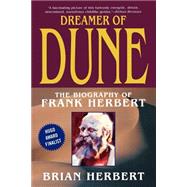
Note: Supplemental materials are not guaranteed with Rental or Used book purchases.
Purchase Benefits
What is included with this book?
| Acknowledgments | p. 7 |
| Introduction | p. 11 |
| Pearl of Great Price | |
| Adventures in Darkest Africa | p. 15 |
| The Spanish Castle | p. 28 |
| Cub Reporter | p. 38 |
| "But He's So Blond!" | p. 53 |
| The White Witch | p. 63 |
| The Jungian Connection | p. 69 |
| The Newsman and Captain Video | p. 78 |
| The South Seas Dream | p. 87 |
| The Family Car | p. 103 |
| Easy Pie | p. 123 |
| They Stopped the Moving Sands | p. 133 |
| A Writer in Search of His Voice | p. 149 |
| Zen and the Working Class | p. 160 |
| The Worlds of Dune | p. 171 |
| Number Two Son | p. 195 |
| Honors | p. 203 |
| Tara | p. 216 |
| Xanadu | |
| A New Relationship | p. 229 |
| Soul Catcher: The Story That Had to Be Written | p. 239 |
| Xanadu | p. 252 |
| A New Struggle | p. 261 |
| Children of Dune | p. 275 |
| Caretakers of the Earth | p. 283 |
| Miracles | p. 288 |
| Old Dreams, New Dreams | p. 300 |
| The Apprenticeship of Number One Son | p. 308 |
| We Used to Visit Them All the Time | p. 315 |
| Kawaloa | |
| First Class | p. 327 |
| Some Things My Father Did Well | p. 338 |
| Kawaloa by the Sea | p. 350 |
| Brave Heart | p. 358 |
| I'll Take Your Worries If You Take Mine | p. 367 |
| The White Plague Is Taking Off! | p. 378 |
| Her Warrior Spirit | p. 384 |
| My Mother's Plan | p. 403 |
| There Are Flowers Everywhere | p. 416 |
| The Race to Finish Kawaloa | p. 419 |
| A Woman of Grace | p. 433 |
| Her Plan, Revealed | p. 441 |
| Live Your Life! | p. 451 |
| This Is for Bev | p. 464 |
| Bridge Over Troubled Water | p. 475 |
| Ho-Hum, Another Day in Paradise | p. 491 |
| And a Snowy Good Morning to You! | p. 499 |
| How Bare the Pathway Down This Mountain | p. 515 |
| Epilogue | p. 529 |
| Sources and Bibliography | p. 537 |
| Index | p. 563 |
| Table of Contents provided by Ingram. All Rights Reserved. |
The New copy of this book will include any supplemental materials advertised. Please check the title of the book to determine if it should include any access cards, study guides, lab manuals, CDs, etc.
The Used, Rental and eBook copies of this book are not guaranteed to include any supplemental materials. Typically, only the book itself is included. This is true even if the title states it includes any access cards, study guides, lab manuals, CDs, etc.
Excerpted from Dreamer of Dune: The Biography of Frank Herbert by Brian Herbert
All rights reserved by the original copyright owners. Excerpts are provided for display purposes only and may not be reproduced, reprinted or distributed without the written permission of the publisher.